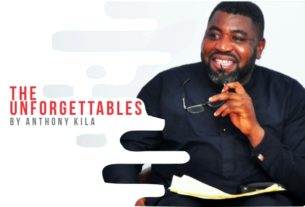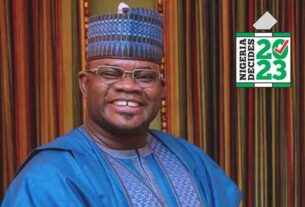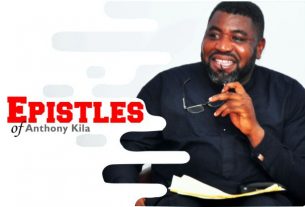There is a common feeling of frustration among Yoruba people in the homeland of Nigeria and beyond the shores of Nigeria. Two major causes of such frustration are cultural and personal.
There is a general feeling among Yoruba people that their culture, with its richness and fullness, is not where it ought to be in the hierarchy of cultures in the world. Many feel a lot of the wisdom and insights that can be drawn from the history and philosophy, science and style of government available in the Yoruba culture are undervalued, unused and even abused. That is a cultural frustration felt more by Yoruba abroad than the ones at home.
There is also a general feeling that the people are not doing very well, (i.e., as much as their potential promises) in terms of opportunities and development. The frustration around personal opportunity and development is more felt in Nigeria where the Yoruba are forced to cohabit with other nations and cultures that do not share Yoruba values and sense of order but are all ruled by a political system that seems designed against the Yoruba people.
Yoruba people in Nigeria are generally distressed by the perception that they have to do more than others to get a decent shot at greatness and fulfilment in Nigeria. The system seems designed to accommodate others while displacing Yoruba people, the Nigerian system seems constructed to hold back Yoruba people whilst uplifting others. So, the cutoff mark for admission to federal schools and employment is lower for northerners and higher for Yoruba as if to punish them for embracing western education. So Yoruba towns and cities are highly populated with thriving eastern and other southern businesses and professionals but there seems to be not a lot of space for Yoruba businesses and professionals in other southern parts of Nigeria as if to punish the Yoruba for being cosmopolitan and accommodating in Yoruba lands.
Most agree that this situation needs to be corrected and the frustrations cured. Roughly speaking, there seem to be two major proposed solutions to cure the Yoruba malaise.
The most radical approach is one that calls for the dissolution of Nigeria or secession of the Yoruba nation from the country called Nigeria. Proponents of this option advocate for the formation of a sovereign Yoruba Nation State that will, as an independent and self-sufficient country, relate with other nations of Nigeria or the whole of Nigeria if it still exists.
A more temperate approach is one that calls for a restructured Nigeria where the Yoruba nation and other regions and nations will be given the latitude to govern themselves based on their own vision and values and to grow at their own pace. Proponents of this approach want to keep Nigeria one but advocate for a decentralized Nigeria. The more radical ones ask for a restructured Nigeria in a regional sense, and the most temperate of them advocate for a true federal system of government. Nigerian politicians of Yoruba extraction operating in major Nigerian political parties tend to fall into this temperate category.
Whichever of the solutions requires leadership but also followership and here we open another box.
Solving the Yoruba discomfort requires a person or people with a clear understanding of the Yoruba frustration, its causes, the capacity to provide a vision, and the ability and character as well as courage to lead others towards a solution that can cure the Yoruba malaise.
In the early days of 2023, Bola Ahmed Tinubu is seen by many as the symbol and zenith of the Nigerian partisan politician of Yoruba extraction, he is also currently running for the of office president of Nigeria in the elections slated to hold in February 2023. His position on Yoruba malaise and frustrations are however more assumed and imagined than declared or argued. It is assumed that he is for restructuring but no one can categorically say if he is for restructuring in a regional or federal state-led structure. Also, his party, the APC, is the ruling party and in seven, close to eight, years in government, the country has not seen a memorable restructuring law or policy notwithstanding that the same APC clearly promised restructuring in its 2015 manifesto. Interestingly, in those close to eight years, there is nowhere Bola Ahmed Tinubu can be quoted as generally advocating for or specifically reminding his government about the promise of restructuring.
Paradoxically, one politician who for at least the past eight years has stood firmly for restructuring so dear to Yoruba people is Atiku Abubakar, another Nigerian politician but of Fulani extraction, he is the main rival of Bola Tinubu in the presidential race. The north is perceived as tepid on restructuring but the candidate of northern extraction is keen on restructuring. Yoruba people are keen on restructuring but the candidate of Yoruba extraction is vague on restructuring.
In the early days of 2023, Banji Akintoye is a man whose name is on the lips of many of those wishing for or interested in a sovereign Yoruba nation. Many are talking about him in the early days of 2023 because he promised and committed many to the idea that a sovereign Yoruba will be achieved by December 2022. Since the date has passed and Yoruba nation remains a wish, many are now treating Banji Akintoye like a fake or false prophet or conman that lied knowing he was lying from the onset.
It is easy to see why people will easily blame Banji Akintoye: The old man was quite persuasive, he appeared very confident and definitive when he was promising what did not eventually happen. Banji Akintoye is however not a prophet nor has he claimed to be one. Yes, he has told more than a few untruths and manifested more than occasional inconsistencies but he has never claimed to have divine powers nor speak for any god.
A now retired teacher of history who taught at the University of Ibadan where he also studied when it was a university college, Banji Akintoye was a politician in the second republic (1979 to 1983) and was elected a senator on the platform of the UPN led by Obafemi Awolowo. In 1983, Banji Akintoye aligned with Akin Omoboriowo against Awolowo. Not much was heard of Akintoye till he reappeared on the sociopolitical scene in 2019, first as a “Yoruba leader” elected by a now untraceable group and later became leader of the Yoruba World Congress (YWC), then became leader of the Ilana Omo Odua, he then turned to leader of the Nigerian Indigenous Nationalities for Self Determination (NINAS) and later turned to leader of the Yoruba Self Determination Movement (YSDM).
For effective and efficient outcome, whether a Yoruba person wants to follow the path of and agenda for restructuring identifiable with partisan politicians like Tinubu and Atiku or the separatist or dissolution agenda botched by the Akintoye leadership, it is important to avoid assumptions and puerile emotions.
It is important not only to ask clear questions but also to get cogent answers on by who, when and how the Yoruba agenda is going to be achieved. It is not wise to follow a politician just because he is Yoruba nor is it judicious to follow an activist just because he says he is one or because he is old and tell tales.
To be continued








